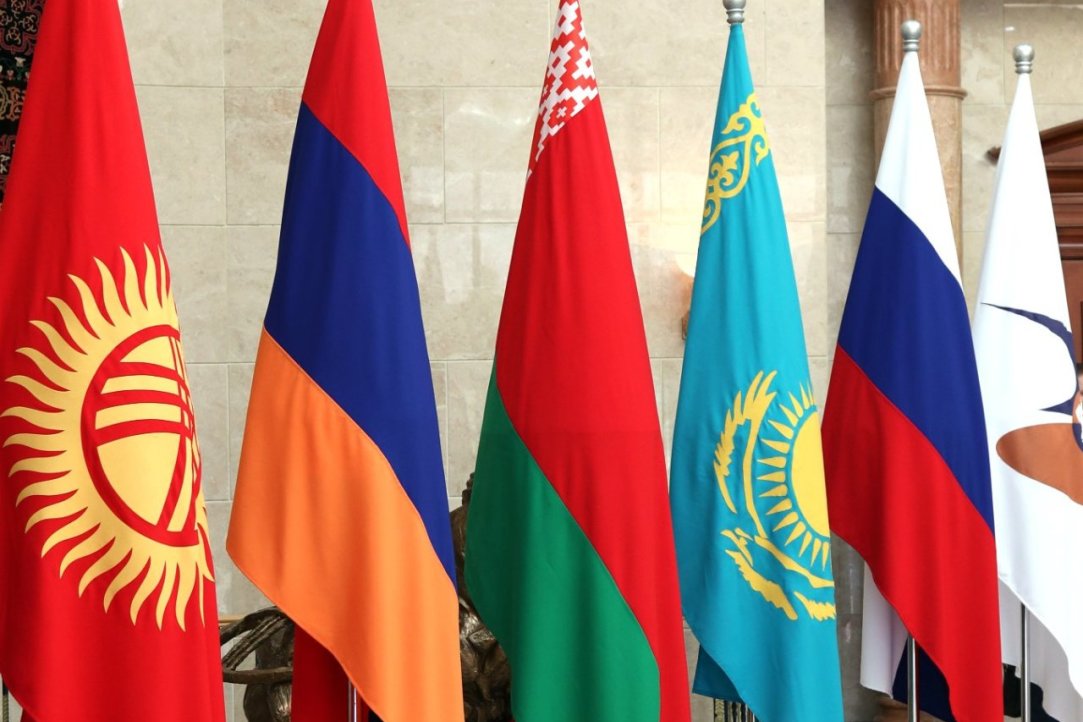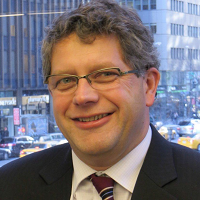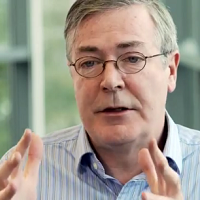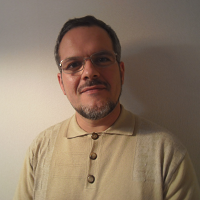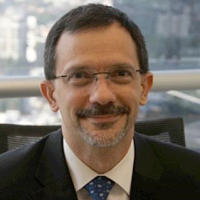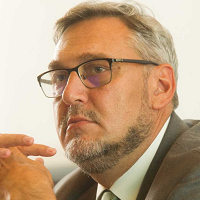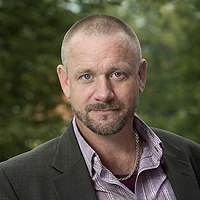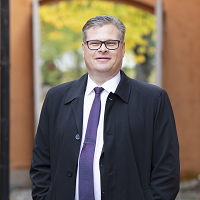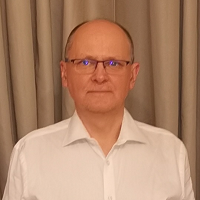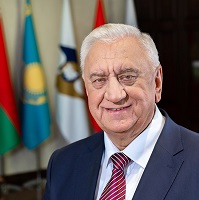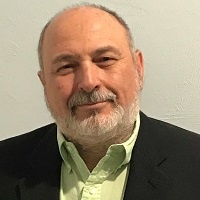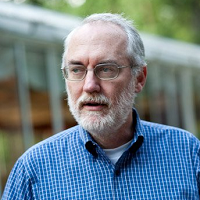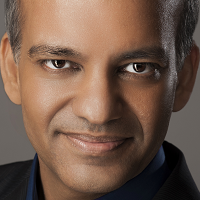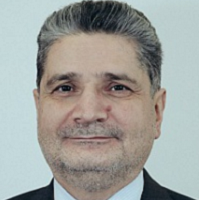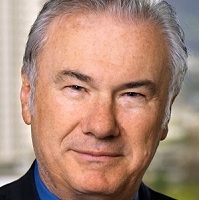On April 13 – 30, 2021 National Research University Higher School of Economics (HSE University) will be hosting the XXII April International Academic Conference on Economic and Social Development.
Format
online
Language
Russian/English,
Simultaneous translation
Streaming
YouTube channel
The Conference's Programme Committee will be headed by Professor Evgeny Yasin, HSE University's Academic Supervisor.
"Dear friends and colleagues,
On April 13, the annual XXII April Conference on Economic and Social Development (hereinafter the “April Conference”) will be starting at HSE University. Last year, the Covid-19 pandemic meant that the Conference could not be a face-to-face event. However, thankfully, the HSE University Academic Council made the wise decision to hold it remotely. So far, the pandemic has not subsided to the extent whereby we can return to in-person discussions entirely. Nevertheless, our experience holding last year’s Conference remotely has opened new opportunities and we are taking advantage of the options offered by online formats.
This year’s April Conference is expanding, both in its duration and geographic coverage. The Conference will be held over a three-week period, from April 13 until April 30, involving a very large number of speakers and participants from outside of Russia. Traditionally, the April Conference will serve as a meeting place for young and distinguished academics, as well as representatives of business, government and the expert community. Like at previous events, we will be discussing the most pressing issues faced by society in academic and scientific terms, while also holding in-depth discussions on a wide array of issues.
The April Conference has long earned its reputation as an esteemed event, where intellectual leaders can gather to provide a comprehensive analysis and engage in extensive discussion on Russia’s development. This year, we will be focusing specific attention on the impact of the Covid-19 pandemic on society, while also presenting research findings for various other pressing topics.
We look forward to seeing you at the April Conference!"
Prof. Evgeny Yasin
Chairperson, Conference Programme Committee
Academic Supervisor, HSE University
Honorary and Invited Speakers

Michael Landesmann
Johannes Kepler University, Austria
Conference Topics
- Arctic Research (special session)
- Demography and Labour Markets
- Economic Methodology
- Education
- Financial Institutions, Markets and Payment Systems
- Firms and Markets
- Healthcare Studies
- Instrumental Methods in Economic and Social Studies
- International Relations
- Macroeconomics and Growth
- Management
- Network Analysis
Arctic Research (special session)
The session accepts reports on issues related to the Arctic region, including economic, political, social, and cultural issues. Theoretical models of the Arctic development are also considered. In addition, the problems of the strategic and project management in the Arctic region will be discussed.
Demography and Labour Markets
This section will cover a wide range of issues relating to demographic trends and the current labour market. At the demographics sessions, participants will discuss changes in demographic processes and structures, the socio-economic aspects of demographic dynamics, population forecasts and models. Moreover, they will consider demographic behaviour, sources of population data, demographics across regions and countries, migration and population policy.
The sessions on the current job market will consider a wide array of issues, including employment, unemployment, wage determination and differentiation, as well as inequality on the labour market and the development of various institutions therein. Furthermore, particular attention will be given to the relationship between the job market and education, along with that between public health and employment rates.
Applications for presenting papers should contain results of original, primarily economic, research (although interdisciplinary approaches will also be welcomed).
Economic Methodology
This section will accept reports examining problems in the methodology of economic sciences, the history of economics sciences in terms of its methodological development, the close links between the economic sciences and economic policy, interdisciplinary research at the intersection of economics and other fields of science. The focal point will be the 150-year anniversary of the Marginal Revolution in the economic theory.
Education
Under the auspices of the "Education" section of the April Conference, two symposiums will be held: Economics, Sociology, Education Policy and Digital Transformation of Education. The first symposium traditionally covers the results of theoretical and empirical studies of education through the prism of economics, sociology and politics. The second symposium addresses the issue that is currently relevant for many researchers and practitioners of education regarding the qualitative changes that have occurred at different levels of the education system in the context of widespread digitalization and the introduction of innovations and new technologies in educational processes.
Financial Institutions, Markets and Payment Systems
The session is devoted to analyzing modern financial institutions, banks, financial and stock markets, as well as payment systems and risk management with respect to the macro and micro aspects of regulation. Furthermore, one key subject of interest would be the influence of innovations on financial intermediation.
Firms and Markets
The session is open to papers on the following topics: corporate governance; corporate finance; the behaviour of firms in markets for goods and services; investment, innovative and organizational behavior; the competitiveness of firms on local and global markets; state-business relations at various levels; market structures; corporate integration; problems of development on regulated markets. Other topics are also welcomed. However papers on marketing, HR management and other managerial issues shall be considered in the “Management” section.
Healthcare Studies
The section is open to the articles on the following topics: factors of healthy lifestyle development, efficiency of health systems, innovations in health care organization, management, and financing, comparative analysis of health care reforms, impact of changes in labor organization and remuneration of health workers on their motivation and activity, patient payments for health care, inequalities in access to health care.
Instrumental Methods in Economic and Social Studies
Possible topics for this session include the development of formal methods used in the social sciences and related practices.
International Relations
The global economy and international political system currently face large-scale changes, which have been caused by accumulated disagreements, unsolved problems in regards to development at both the global and national level, the rise of certain states and the gradual decline of the power of the others. The nature and content of these changes must be the object of thorough and in-depth analysis, which should be conducted at the national and regional level, as well as through a systematic analysis.
The advent on the international arena of new global economic and political actors in Asia and Eurasia, the uncertain dynamics of European development, radical transformations in the US political system and foreign policy all provide new opportunities for testing existing theoretical and methodological approaches, as well as for identifying areas for their improvement. In practical terms, it is crucial to fully examine current global shifts in order for Russia to opt for more suitable and beneficial foreign economic and political strategies.
Macroeconomics and Growth
The session will consider papers on the various aspects of economic development and growth. Specifically, we invite participants to submit theoretical and empirical papers, which explain the differences between countries, industries and subnational regions in terms of incomes level and growth, as driven by institutions; geography; trade openness; fiscal and monetary policies; development of financial markets and the impact of external shocks.
Although we welcome papers on general growth-related issues, studies related to Russia would be of special interest of us. Such studies may consider issues, which are specific for the Russian economy, such as the substantial regional heterogeneity, volatility of growth rates and dependence on exports of natural resources.
Management
The session will discuss empirical research and conceptual papers, which cover the impact of political and economic volatility and digital transformation of business on such areas of management as New business models for digital economy, Corporate governance, Strategic management (including international business), Corporate social responsibility and sustainability management, Leadership and HR management, Tourism and hospitality management, Investment project management, Marketing and marketing communications, Operations management and logistics, Corporate information systems, Business analytics, Financial management: risk management and business valuation in digital economy.
Network Analysis
Possible topics for this session include: network science models and tools for network analysis (e.g., multi-level and complex networks); the current gaps in network science methodology; creation of network datasets in sociology, management, education, and other fields that focus on currently pressing issues; creation of cross-sectional and longitudinal models of networks and behaviour in a variety of disciplines in order to test real and simulated data; evaluating the impact of research design on the robustness and resistance of network models; developing software applications for new network methodologies; other network-related studies.
Political Processes
We welcome applications to present reports focused primarily on comparative analysis of political institutions and processes in contemporary Russia and other countries (relying on qualitative and quantitative methods). Furthermore, we are interested in reports intrinsically focused on comparative and global politics, political theory, behavioural patterns of political actors, political cultures, political science methodology in research, etc.
Regional and Urban Development
This session will consider the following topics: territorial development; the extent and dynamics of regional inequality; development of various sectors of economy and social sphere in the regions; regional politics; instruments to stimulate territorial development; relations between the periphery and the centre; budget policies at the subnational level; socio-economic development of cities and agglomerates; housing policy and urban development; urban policy and municipal development management; transformation of agricultural areas.
Russian Justice: Modern Tendencies
The development of law and legal institutions both within Russia and globally depends not only on how norms of applicable laws are formulated but equally on their implementation through supra-national, national, state and social practices, which, while determining the quality of life, also ultimately depends on the development of law enforcement infrastructure at different levels and stages, primarily, at the level of courts.
This sphere presents serious challenges for legal and interdisciplinary research, as well as for practical transformation, and, as such, is a key matter of discussion in legal studies.
This section will cover issues of development for law enforcement institutions in Russia and other countries with a particular focus on the state and the development of constitutional justice, mechanisms of ensuring fairness and due process of law in the Russian justice system, as well as the effects of coercive mechanisms, implemented through systems of justice, to enforce economic (competitive) relations.
Science and Innovation
At this section, participants will present their forecasts for technological development and innovation, with a particular focus on developing technological and innovation policies, foresight research methods, assessing and analyzing trends in research and technology, while also considering tools to manage R&D activities and their application.
Social and Cultural Processes
This session will focus on innovative research on the interactions between culture and society. Papers on either the objectified (cultural institutions, rituals, etc.) or subjective (values, identities, etc.) aspects of culture are welcome. Likewise, contributors may apply either quantitative or anthropological methods in their research.
Social and Economic History
The session will discuss research into a great variety of political, economic, social, gender, cultural and other aspects of society in the past. We welcome papers on social mobility, history and memory, social transformation, comparative studies, microhistory, the history of daily and private life, the history of emotions, etc.
Social Policy
Social policy is the most important tool for maintaining social stability, developing human capital, and enhancing its contribution to overall social and economic development. This session is focused on issues related to the level and quality of life of households and social policies with the aim of equalizing the chances of development for various social groups. The most important of these issues are:
1) income, expenses and consumption of households;
2) inequality and poverty;
3) living standards;
3) family economy and policy;
4) social insurance and pension system;
5) social services and nursing care for persons with self-care deficit;
6) social support programmes.
Sociology
For this session, we plan to gaze through the prism of sociology and related disciplines at social phenomena, processes and practices, both those rooted in the past and the latest contemporary issues.
We welcome papers that consider the dynamics of social institutions, social structures, prospects for social mobility, the connections among educational institutions, the labour market and the economy, trends in progressive social stratification, analysis of social values (both at the societal level and among certain social actors), etc.
Our overall focus shall be on the pragmatism of social relations, segmentation along ethnic, social, economic, cultural, symbolic, digital, gender and other lines underlying inequality.
Pressing issues for this year shall include the social consequences of the Covid-19 pandemic, ethnic conflicts, and the effects of solidarization and mobilization.
Sports Studies
This session will present theoretical and empirical research papers, which deal with economic, social, and managerial problems in the sports industry. Papers on the following topics would be welcome: success factors in sport, league regulation, tournament design, contest theory, development of tournament and match strategies, corruption, betting, spectator demand, financial and social issues of sporting mega-events, scheduling, competitive balance, eSports and other issues.
State and Local Government, and NPO sector
This session will focus on a wide range of issues related to improving public and local administration, as well as the role of non-profit organizations in dealing with issues of socio-economic development. It will also discuss problems related to strategic, programme and project management, administration of public financing, improving regulatory measures, organizing public and municipal services, building connections between state authorities and civil society, and the types and operational methods of non-profit organizations.
Theoretical Economics
The session covers the broad range of ideas in economic theory, including micro- and macroeconomics, industrial organization, political economy, social choice theory and other fields using methods of contemporary economic theory, game theory, decision theory econometrics and related disciplines.
Also, papers will be accepted in such fields as applied economics and experimental economics (e.g., neuroeconomics), which test the predictions of economic theory or explore individual or collective behaviour in regards to various problems and different contexts.
World Economy
This section will include papers on current trends and problems facing the global economy, such as: new developments in international trade, trans-border capital flow and global corporations, international migration of labour force, regional integration and international economic institutions, technological innovation and the challenges of sustainable development.
Furthermore, participants will discuss the development of national economies around the world and their relationship with global processes, changes in the impact of developing economies on global economic ties, as well as Russia’s role in the global economy.
News



